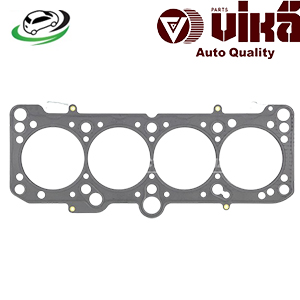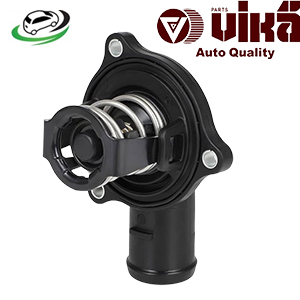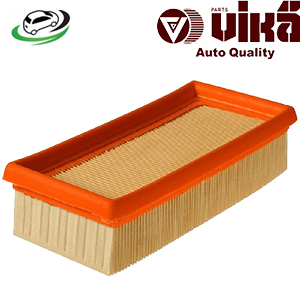-22%
Get VW Caddy I (14)/ Golf I (17)/ Jetta I (16)/ Scirocco (53) Air Filter 055129620A
An air filter is a crucial component of an internal combustion engine, responsible for preventing contaminants such as dirt, dust, and debris from entering the engine. Clean air is vital for the efficient operation of the engine, ensuring optimal fuel combustion and protecting engine components from damage. This article provides a detailed explanation of the air filter’s function, types, benefits, symptoms of failure, and maintenance tips.
1. What is an Air Filter?
An air filter is a mechanical device made of porous materials, designed to trap airborne particles and prevent them from entering the engine’s air intake system. It is typically located in the air intake housing, positioned before the air reaches the combustion chamber. By filtering the air, the engine can perform more efficiently and experience fewer wear and tear issues over time.
Location
- In most vehicles, the air filter is found in the air intake housing, which is easily accessible for maintenance and replacement. Its design may vary, but the core function remains the same across different engine configurations.
2. Function of an Air Filter
The primary function of the air filter is to ensure that only clean air reaches the engine. Air is a critical component in the combustion process, and the presence of contaminants can disrupt this process, reduce engine efficiency, and cause long-term damage.
1. Filtering Airborne Contaminants
- The air filter removes contaminants like dirt, dust, pollen, leaves, and even insects from the air entering the engine. These particles can cause damage to the engine if allowed to enter the combustion chamber.
2. Ensuring Proper Combustion
- Clean air is necessary for efficient combustion. The correct air-fuel mixture is crucial for the engine’s performance, fuel efficiency, and power output. A clogged or dirty air filter can restrict airflow, leading to an improper air-fuel mixture, which can reduce performance.
3. Protecting Engine Components
- The air filter protects vital engine components, such as the pistons, cylinders, and valves, from abrasive particles. Contaminants can cause these parts to wear out faster, leading to engine damage over time.
3. Types of Air Filters
Air filters come in several different types, each with unique materials and designs to suit various applications and vehicle types. The most common types of air filters include:
1. Paper Air Filters
- Description: Made from pleated paper, these filters are the most common type found in vehicles. They are inexpensive, easy to replace, and effective at filtering out contaminants.
- Pros: Affordable and disposable, efficient at trapping particles.
- Cons: They need to be replaced regularly and cannot be cleaned or reused.
2. Foam Air Filters
- Description: Foam filters are made from sponge-like materials and are often used in off-road vehicles due to their high dust-trapping capability.
- Pros: Can be cleaned and reused, effective in dusty environments.
- Cons: Less efficient at trapping fine particles compared to paper filters.
3. Cotton Gauze Air Filters
- Description: These filters are made from layers of cotton gauze sandwiched between metal meshes. They are often oiled to enhance their filtration efficiency.
- Pros: High airflow, washable and reusable, long lifespan.
- Cons: Require regular maintenance and cleaning, more expensive than paper filters.
4. Carbon Air Filters
- Description: Carbon filters are used in cabin air filtration systems and some engine filters to trap not only particles but also odors and gases.
- Pros: Filters out odors and harmful gases in addition to dust particles.
- Cons: Typically used in cabin air filters rather than in the engine air intake system.
5. High-Performance Air Filters
- Description: These filters are designed to allow more airflow into the engine, improving performance and power output. They are commonly found in performance or sports vehicles.
- Pros: Enhanced airflow, reusable, can improve engine performance.
- Cons: May allow more particles into the engine if not properly maintained.
4. Benefits of a Clean Air Filter
A clean air filter offers several benefits that contribute to the overall performance, longevity, and efficiency of an engine:
1. Improved Engine Performance
- A clean air filter ensures optimal airflow into the engine, which helps maintain the correct air-fuel mixture for efficient combustion. This leads to better throttle response, smoother acceleration, and improved power output.
2. Enhanced Fuel Efficiency
- Proper airflow ensures that the engine burns fuel more efficiently. A clogged air filter can cause the engine to use more fuel to compensate for reduced air intake, leading to lower fuel efficiency.
3. Extended Engine Lifespan
- By preventing contaminants from entering the engine, the air filter helps reduce wear on critical engine components, extending the lifespan of the engine and reducing the likelihood of costly repairs.
4. Reduced Emissions
- A clean air filter promotes complete combustion of the air-fuel mixture, which reduces the production of harmful emissions such as carbon monoxide and hydrocarbons.
5. Symptoms of a Clogged or Dirty Air Filter
A dirty or clogged air filter can negatively affect the engine’s performance. Some common symptoms of a failing air filter include:
1. Reduced Engine Power
- If the air filter is clogged, it can restrict the amount of air reaching the engine, leading to a noticeable loss of power, especially during acceleration.
2. Decreased Fuel Efficiency
- A dirty air filter forces the engine to work harder to draw in air, which increases fuel consumption. You may notice a decrease in your vehicle’s fuel economy.
3. Black Smoke from Exhaust
- A clogged air filter can cause the air-fuel mixture to become too rich (too much fuel and not enough air), resulting in black smoke coming from the exhaust. This is a sign that the engine is not burning fuel efficiently.
4. Rough Idle or Misfiring
- Restricted airflow can cause the engine to run rough or misfire, especially at low speeds or when idling.
5. Check Engine Light
- In some modern vehicles, a clogged air filter can trigger the check engine light as the engine’s sensors detect an improper air-fuel mixture.
6. Maintenance and Replacement Tips
Proper maintenance of the air filter is essential for maintaining engine performance and longevity. Here are some tips for keeping your air filter in top condition:
1. Check the Air Filter Regularly
- Inspect the air filter during routine vehicle maintenance, typically every 12,000 to 15,000 miles, or more frequently if you drive in dusty or polluted environments.
2. Replace the Air Filter When Necessary
- Replace paper air filters when they appear dirty or clogged. Foam and cotton filters can be cleaned and reused but should still be replaced if they show signs of damage or excessive wear.
3. Follow Manufacturer Recommendations
- Always follow your vehicle manufacturer’s recommendations regarding air filter replacement intervals. These guidelines are designed to optimize engine performance and longevity.
4. Use High-Quality Filters
- Using a high-quality air filter ensures better filtration and longer service life. Cheap, low-quality filters may not offer adequate protection for your engine and may need to be replaced more frequently.
5. Clean Reusable Filters
- If you have a reusable foam or cotton filter, clean it according to the manufacturer’s instructions. Use the recommended cleaning products and allow the filter to dry completely before reinstalling it.
7. Air Filter Replacement Procedure
Replacing an air filter is generally a straightforward process, but it can vary depending on the vehicle. Here’s a basic guide to replacing an air filter:
1. Locate the Air Filter Housing
- Open the vehicle’s hood and locate the air filter housing, usually a black plastic box connected to the air intake pipe.
2. Remove the Air Filter Housing Cover
- Depending on the design, you may need to remove clips, screws, or bolts to open the housing. Be sure to keep track of any small parts.
3. Remove the Old Filter
- Take out the old air filter and inspect it for dirt, dust, or damage. Compare it to the new filter to ensure the correct fit.
4. Install the New Filter
- Place the new filter in the housing, ensuring it is seated properly. The rubber seal should be flush with the edges of the housing.
5. Close the Air Filter Housing
- Replace the cover and secure it with the clips, screws, or bolts.
6. Test the Engine
- Start the engine and ensure that it runs smoothly. Check for any warning lights or unusual noises that could indicate an issue.
Conclusion
The air filter is a vital component that plays a key role in protecting the engine and ensuring optimal performance. By filtering contaminants from the air before it reaches the engine, the air filter helps maintain the proper air-fuel mixture, improve fuel efficiency, and extend the engine’s lifespan. Regular maintenance, timely replacements, and choosing high-quality filters are essential for keeping your vehicle running smoothly. Recognizing the symptoms of a clogged air filter and addressing them promptly can prevent costly repairs and keep your engine in top condition.
Follow us on Facebook for more parts.




Reviews
Clear filtersThere are no reviews yet.